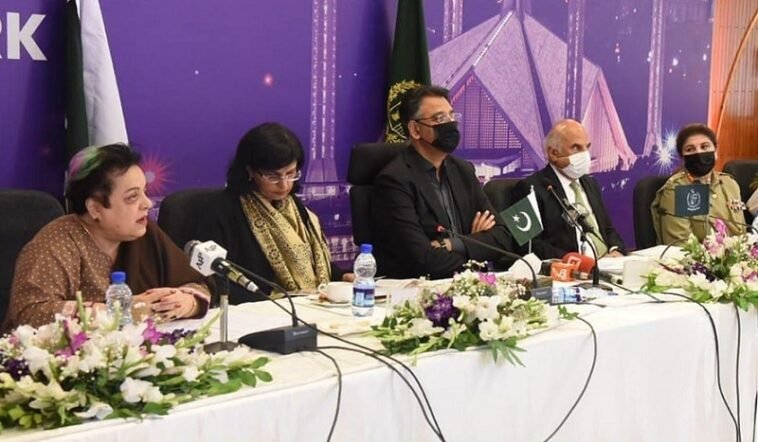The problem of the gender gap is something that every country in the world is facing. Women around the world are striving day and night to counter gender disparity and appear as an equal part of society. Many countries have implemented policies to ensure that equality is maintained in society. For this purpose, the government of Pakistan has launched the National Gender Policy Framework 2022, a way to empower women.
In Pakistan like any other country, gender inequality is faced in every walk of life. It’s not only because the jobs are mostly given to the male but also the women don’t come forward to take upon the jobs that are deemed by society as jobs meant for a male like the police. The profession of police is generally stereotyped as something that requires strength, courage, bravery, force, and whatnot. But why it is so that women can’t have this all? However, this perception has changed around the world and in Pakistan when women started to opt for the profession. This is how you bring the change.
National Gender Policy Framework 2022
The Ministry of Planning, Development & Special Initiatives wished the women of Pakistan women’s day by launching the National Gender Policy Framework 2022. This initiative is truly meant to empower women to partake in all fields and contribute to the economy equally.
Federal Minister Asad Umar said the initiative aims at taking action on the honest intent of the government to give women their rights and to empower them. Along with Federal Minister Asad Umar, Special Assistant to PM, Dr. Sania Nishtar, Human Rights Minister Shireen Mazari, Lt General Nigar Johar, and Inter-Provincial Coordination Minister Fahmida Mirza were also present at the occasion.
The greater inclusion of women in the economy is imperative to achieve the sustainable development goals set by Pakistan. The new policy framework covers six areas where changes will be made to facilitate women i.e., employment opportunities for women, encouraging leadership and political participation, security, and health.
Moreover, women contributions in different fields were also acknowledged at the event. Regarding the female health workers, Asad Umer said “We fully recognize that our health response was delivered by a workforce, which comprises of 76% females [55% female doctors, 88% female nurses and 100% female lady health workers].”
The government also focused on the problem of lower enrollment of women in the education sector. Regarding political participation, the need for more women to become a part of politics was also expressed. Though women are there in politics, the number is still very less as compared to men.
The government is working to increase women’s contribution to the economy to 50 percent. A balance of 50/50 contributions from men and women will boost the economy and will narrow down the gender gap. The policy has been introduced now just the effects of it are to be witnessed. We hope it brings positive changes and not just stays restricted to the paper only.





